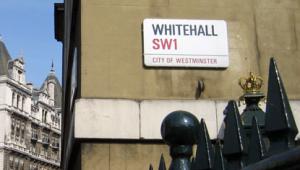The BBC has reduced its back-office costs in the past five years and is set to make further real-terms savings, the National Audit Office has concluded.
The audit of the public service broadcaster, undertaken for governing body the BBC Trust, found the corporation had been able to cut costs across all but one of its eight business functions.
These included marketing, policy and strategy, finance functions and the director general’s office. The total cost of these functions has decreased by 23% over the period. The area it failed to make savings in, due to the building of its new headquarters in Salford, was its property management function, BBC Workplace.
There are also areas where the BBC could further ‘strengthen its approach to challenging costs’, the NAO found. Comparing the costs of these functions with those of the wider public sector had revealed ‘a mixed picture’ with scope for greater savings.
The report, published yesterday, found that instead of attempting to establish what these functions should include, the corporation wanted only to ensure it could ‘live within the cost constraints’ of the current licence fee settlement. The deal signed in October 2010 froze the charge for six years.
As a result of this approach, there was little co-ordination or consistency in challenging costs across the organisation, although it intends to save 25% on support services by 2016/17.
In 2010/11, the BBC spent £421m on overheads, 12% of the total £3.6bn licence fee funds. Its aims to limit this spending to less than 10% of the licence fee income by next year, but the NAO said it was uncertain this was a valid target.
Auditor general Amyas Morse said the BBC’s approach to challenging costs should be ‘further strengthened in the future’.
He added: ‘To be certain that it is achieving the best possible value for money for the licence payer, the BBC needs to be consistent and rigorous in defining the service it requires from its support functions; identify what that service should cost; and adjust its costs accordingly.’
The BBC Trust welcomed the report, and agreed to develop the corporation’s range of performance indicators and share best practice better throughout the organisation.
Anthony Fry, the trustee with lead responsibility for value for money, said: ‘We accept that there are improvements to be made to understand exactly what each support function should cost and to make future cost savings in a more co-ordinated and consistent fashion.
'We have set the BBC management a target to deliver 11% of efficiency savings by 2016/17 and the NAO’s recommendations will help us achieve that target in the right way.’





















